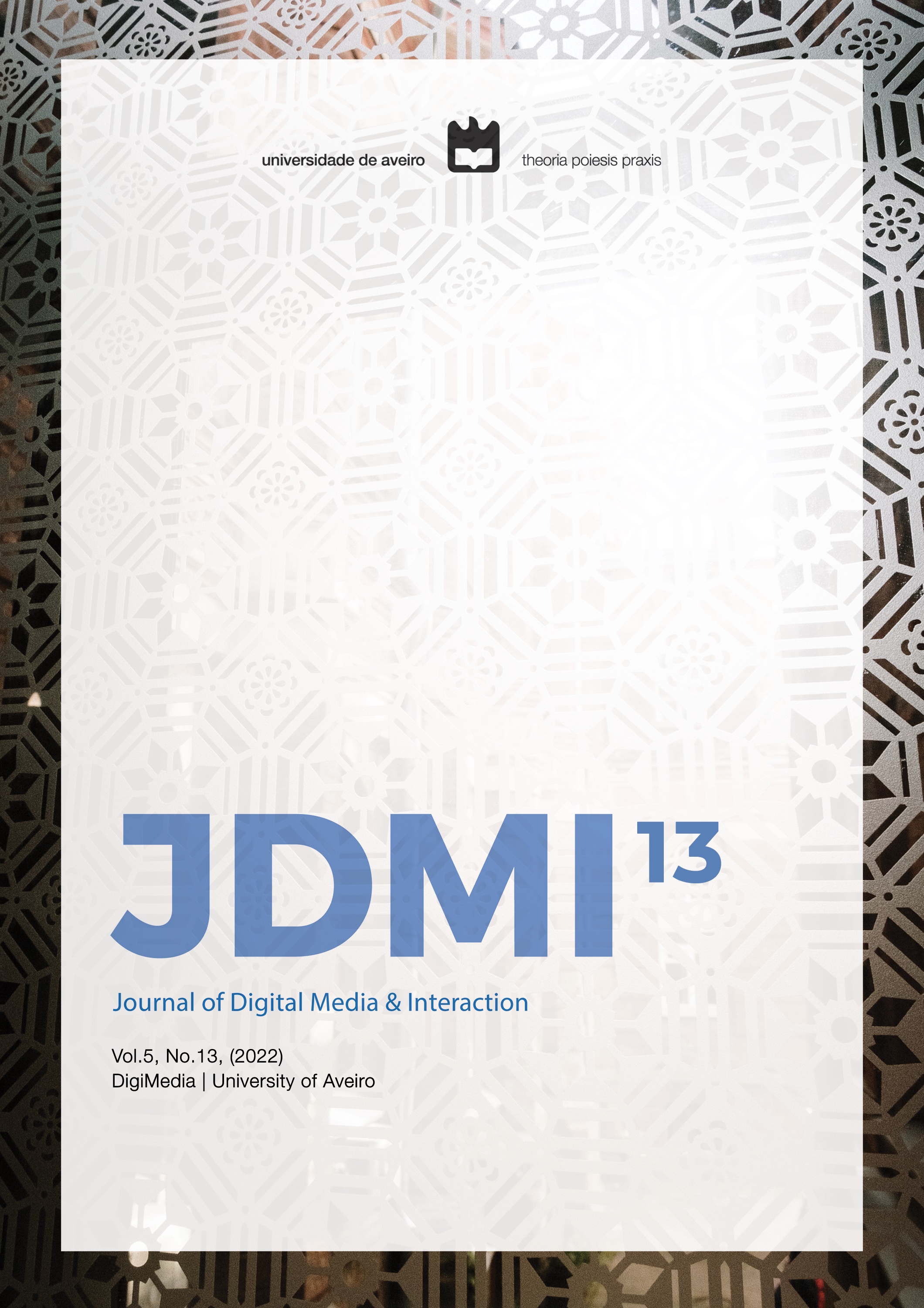Portuguese Community Radios on the Internet: Broadcasting Exclusively Online and the High Practice of Podcasting
Abstract
Despite the ranking of the Community Media Forum Europe (CMFE, 2012) presented two Portuguese community radio broadcasters, the most recent mapping (2021) show us the existence of 21 radio projects, between 2015 and 2020. These projects are linked to a community based on tradition and social relationships (Delanty, 2009), but also by the same language (Weber, 1983) or religion (Amaro, 2007; Cohen, 1985). In this field it’s possible to distinguish between geographical communities, based on local relationship, and imagined communities (Anderson, 1993) or virtual communities (Rheingold, 1996), based on the same interests, affinities or cultural consumption in the digital world. In Portugal, the appearance of these community radio projects is coincident with the internet development and consequently they have a strong, and almost exclusively, web presence. Even though these stations were created, they don’t formally exist as community radios, because the Law of the Radio doesn't foresee a third broadcasting sector in Portugal. The Portuguese community radios, with their exclusively online presence, enhance new ways of civic participation and a new democracy stage (Dahlgren, 2013; Ferreira, 2012), and assumes itself an ideal place to mobilize people to a common cause. The participation’s intensity is observed by the fact that their programs are being made by their own listeners and regard some subjects that don’t have place in the mainstream radios. Consequently, it reinforces the proximity with the local communities. For instance, each radio program corresponds to a different author, clearly existing diverse contents or subjects, although we can notice there is an excessive number of musical programs. About the contents, 367 radio programs of these 21 radio projects were analyzed, following a grid made based in the studies of Beaman (2006), Bonini et al. (2014), Fleming (2009) and the grids identified in Radioking.com (2019), Community Radiotoolkit.net (2019) and Spacial.com (2019), with the main goal of contributing to a general overview of the Portuguese third broadcasting sector. The 21 online radio projects analyzed, mostly present a program grid with the name and time of broadcasting. Online broadcasting occurs in 62% of these stations, the same percentage of projects that make their programs available in content format. This percentage equals 13 radio projects that allow listening to the programs in streaming (57,1%) or podcast (19%). Of these radios, 12 put their programs in streaming (57.1%), four in podcast (19%). It is also important to add that only two radios allow subscription to the RSS Feed. Of the 367 analyzed programs, the majority is inside a musical author typology. We can also see a few programs in the categories of radio drama, call-in-phone in, soundscape, sports, and religious. Nevertheless, it’s important to say that Portuguese community radios bet in the social networks to promote and disseminate their programs and to establish the relationship with their listeners.
Downloads
Copyright (c) 2022 Miguel Midões

This work is licensed under a Creative Commons Attribution-NonCommercial-NoDerivatives 4.0 International License.
Authors who publish in the JDMI agree to the following terms:
-
Authors retain copyright and grant the journal the right of first publication with the work simultaneously licensed under a Creative Commons BY-NC-ND 4.0. This licensing allows others to share the work with no changes and acknowledgement of the work's authorship and initial publication in this journal, but not for commercial use.
-
Authors are able to enter into separate, additional contractual arrangements for the non-exclusive distribution of the journal's published version of the work (e.g., post it to an institutional repository or publish it in a book), with an acknowledgement of its initial publication in this journal.
-
Authors are permitted and encouraged to post their work online (e.g., in institutional repositories or on their website) after publication, as it can lead to productive exchanges, as well as earlier and greater citation of published work.
Copyrights to illustrations published in the journal remain with their current copyright holders.
It is the author's responsibility to obtain permission to quote from copyright sources.
Any fees required to obtain illustrations or to secure copyright permissions are the responsibility of authors.
Additional Information
All correspondence concerning contributions, books and other review material should be sent to: deca-jdmi@ua.pt


